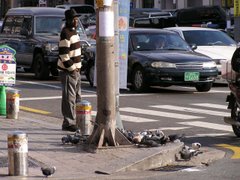Reblogged from Manila Bulletin online - http://networkedblogs.com/sASh5
Rethinking assessment approaches and methods
MANILA, Philippines — Assessment is the way we measure or test learning. It is here where our framework finds or must find effective integration into the classroom environment.
We must recognize and implement assessment not just as a tool to test learning, but also as a tool to reinforce it.
Assessment Paradigms
Old thinking #1: I teach, participants perform, I assess: This follows the Behaviorist theories that participants are subjects. Identify, demand and measure all the desired outcomes. Reward the desired and punish the undesired.
Wave of Change #1: I’m a catalyst for learning and self-assessment: This approach asks, “How does the human brain naturally, intrinsically, learn best and what can we do to encourage more of its best learning?”
Old Thinking #2: Some people make a difference, some don’t: Let’s invest more in those that matter.
Wave of Change #2: Either none of us make a difference or all of us make a difference. Therefore, I do make a difference.
Old Thinking #3: Laying blame: “I’m a victim of circumstances beyond my control.”
Wave of Change #3: I can’t control everything but I can control my responses to everything.
Old Thinking #4: Trainer presents his/her view of the training as the truth: Participants are expected to conform to their model.
Wave of Change #4: You ask them, “What is your model? How do you think… and why? I’ll enter your world so we can talk to each other.
Old Thinking #5: Avoid mistakes: They’re bad. Mark participants down for failure.
Wave of Change #5: Mistakes are feedback and an opportunity to grow… We can use them positively and learn from them.
Old Thinking #6: Some are going to fail no matter what is done. It’s just the way it is.
Wave of Change #6: Instill success attitudes. Increase your own flexibility and your success rate will soar.
Old Thinking #7: Let’s test participants to find out if they are gifted or not.
Wave of Change #7: Let’s bring out the giftedness in every learner we can.
Old Thinking #8: Label students based on classroom performances.
Wave of Change #8: Treat negative class behaviors as temporary and every participant as unlimited.
Old Thinking #9: The trainer as “the boss, the star, the autocrat of the training room.”
Wave of Change #9: Your participants as proactive, responsible, starts in the training.
Old Thinking #10: Fill up the participants with knowledge like a container.
Training is a safe, easy, low risk secure profession.
Wave of Change #10: Be a catalyst so learners can learn how to gain skills and knowledge.
Successful training requires constant personal growth and professional risk-taking. Happy new year to all our readers!







